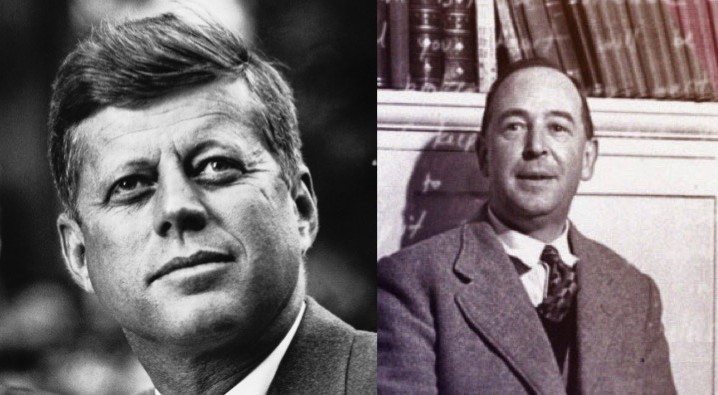Today, November 22, is one that most of the world recognizes for one significant event. I recognize it for two, and the latter is of greater consequence.
In the preface of my book, America Discovers C. S. Lewis: His Profound Impact, I write this:
I grew up in Bremen, Indiana, population roughly four thousand, surrounded by corn fields and a significant Amish community, half a world away from Oxford and in an entirely different environment. My parents had never read any of Lewis’s works; there was nothing in my background to lead me in that direction.
By the end of the decade of the 1950s, I could ride a bike and fill my bike’s basket with books from our local public library, a feat I accomplished consistently. Already, before the age of ten, I was a voracious reader. Yet I never borrowed anything in the library by C. S. Lewis. All of his Narnia books had been published by then, but if they were in that library, they never crossed my path, and my affinity for fantasy/science fiction reading surely would have aroused my interest if I had seen them.
Since I knew nothing of Lewis in 1960, I was unaware that his wife, Joy, had died that July. It would have had no meaning in my young life.
When Lewis himself died on 22 November 1963, again I took no notice. But I wasn’t alone—the whole world was startled and anxious over the death of another man that the world deemed more consequential.

As the president of the United States, John F. Kennedy, was placed in his grave shortly afterward, so was C. S. Lewis. Today, which of those two is of greater significance? I would argue that Lewis has influenced more American lives since his death than has the former president.
God’s judgments about greatness are rarely the same as man’s. On this day, I remember both of these men, but I honor far more the one less acknowledged.
